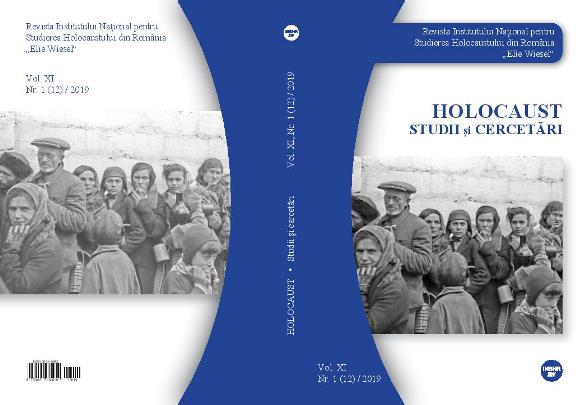The Human Right to Convert during the Holocaust
in Romania
The Human Right to Convert during the Holocaust
in Romania
A Legal Approach
Author(s): Nicolae DrăguşinSubject(s): History of Law, Human Rights and Humanitarian Law, WW II and following years (1940 - 1949), History of Antisemitism, Philosophy of Law, History of Religion
Published by: Institutul National pentru Studierea Holocaustului din Romania ELIE WIESEL
Keywords: Holocaust; conversion; Christianism; human rights; antisemitism;
Summary/Abstract: The paper starts from the following question: How can the problem of conversion be analysed in legal terms? Hence, on the background of the Jews’ conversion to Christianity during the Romanian Holocaust, the present paper focuses only on the legal situation. It argues that conversion represents a personal liberty protected by the human right to freedom of conscience. As long as this assertion is demonstrated, it follows that the state should respect this human right in its legislative activity and, correspondingly, the subjects ought to have the moral duty to disobey the legislation, whenever it violates the human right to freedom of conscience. The present paper analyses Decree-law no. 711 of 18 March 1941, that amended Law no. 54 of 22 April 1928, regarding the cults. That was the Decree-law responsible for banning the conversion of the Jews to other religious cults. The reason behind this amendment was stated by General Radu Rosetti, the Minister of Cults in Ion Antonescu’s government: “The ethnicity of our nation must be preserved from mixing up with Jewish blood. Nowadays, the Jews have the possibility to hide their ethnical origin by moving from the Mosaic cult to our national religions.”
Journal: Holocaust. Studii şi cercetări
- Issue Year: XI/2019
- Issue No: 12
- Page Range: 11-34
- Page Count: 24
- Language: English
- Content File-PDF

